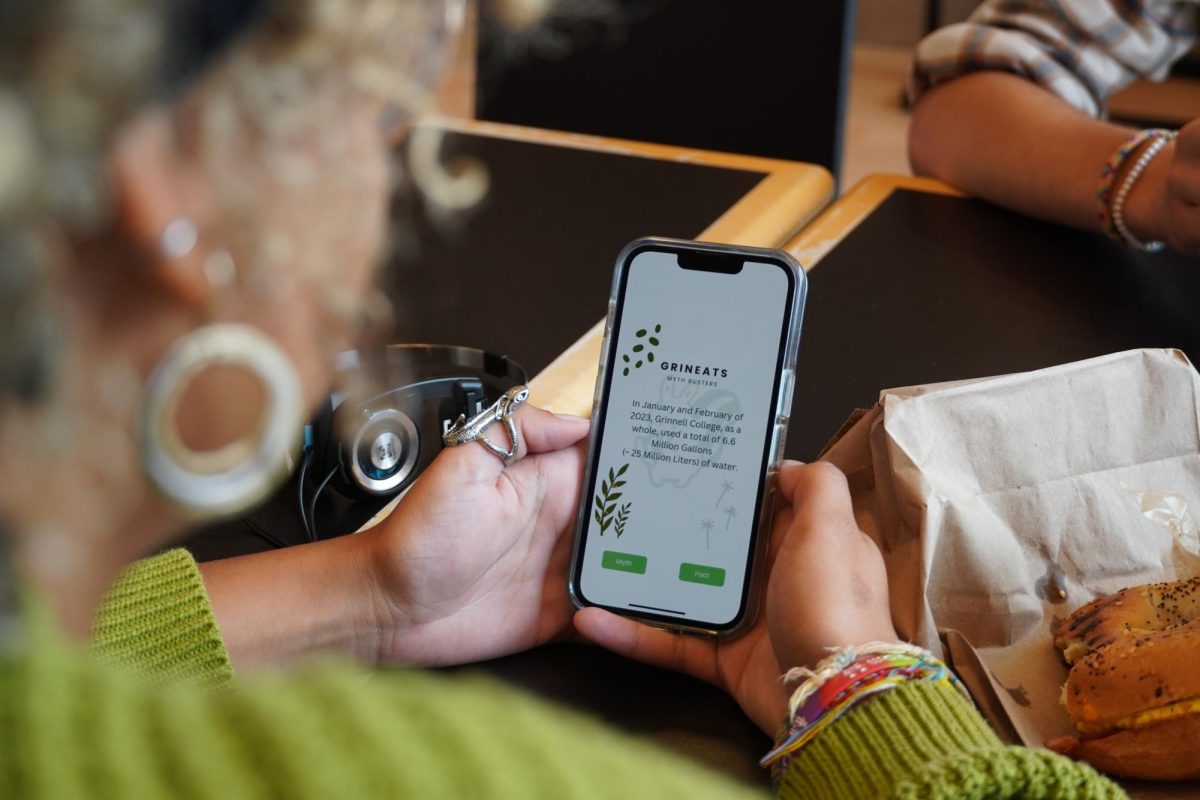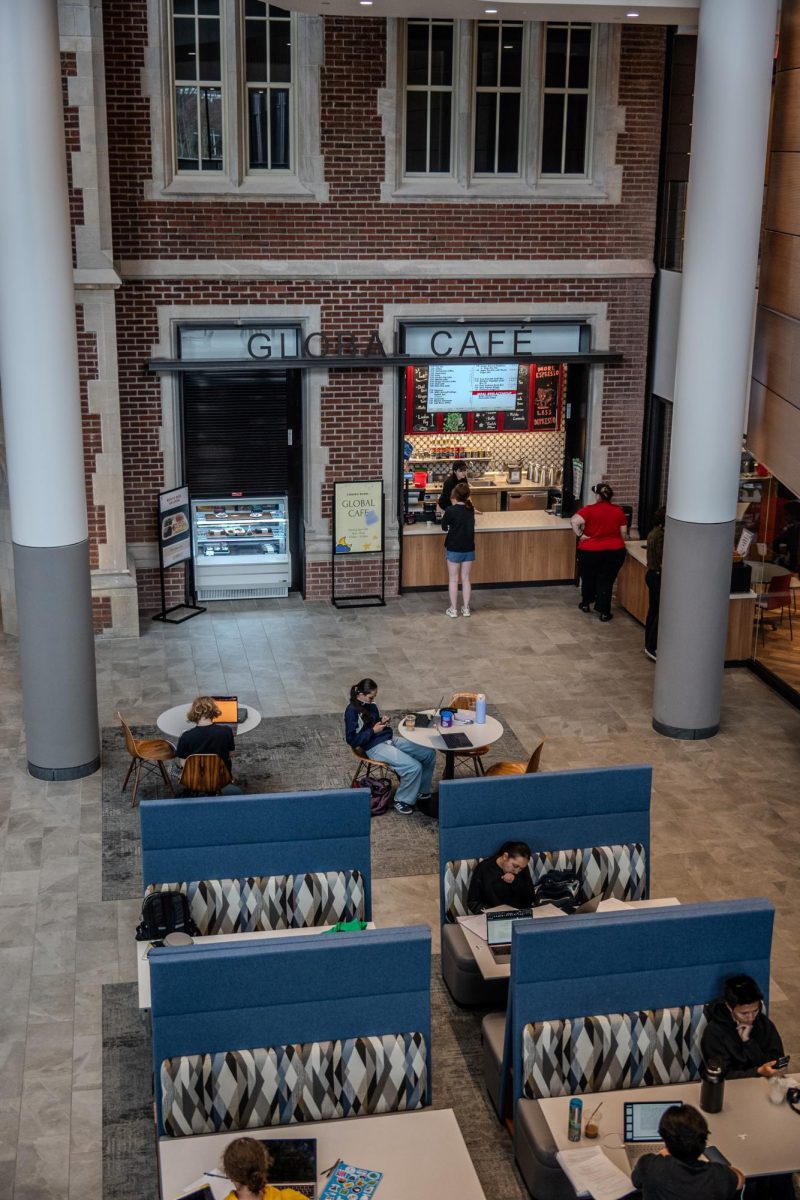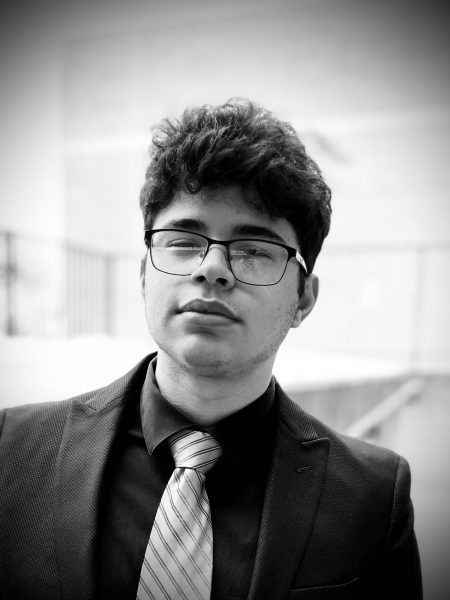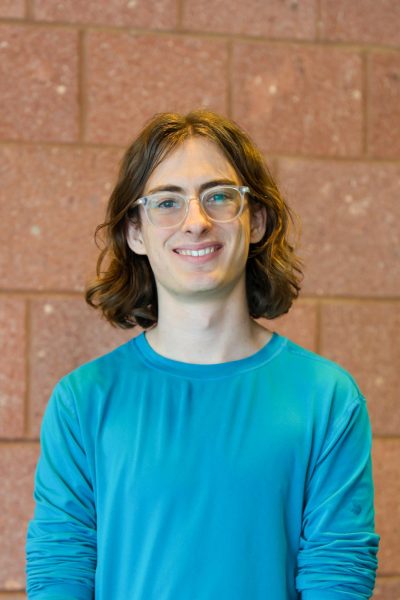App developers Shrey Agrawal `24 and Avaash Bhattarai `26 released a new app, GrinEats, on Aug. 8 and Aug. 10 in the App Store and Google Play, respectively. GrinEats became popular at the College, days after the student body returned to campus – having over 600 downloads in the 24 hours following the release announcement on Aug. 24 through an all-campus email, said Agrawal. Now, Agrawal and Bhattarai are looking for ways to gain funding to improve the app.
During his first year, Agrawal came up with the original idea behind the newly-released app while working at the Dining Hall. Agrawal said he saw how much food was being wasted and thought that something had to be done about it. He said he then spent the following months consolidating an idea on how to make the Dining Hall more sustainable.
In the spring of 2022, Agrawal participated in the SPARK Community-Based Social Innovation Challenge – an entrepreneurial competition by the Wilson Center for Innovation and Leadership –– as part of being enrolled in WIL 110: Introduction to Entrepreneurship. As part of the challenge, students work with a community partner to identify and solve an issue in the community.
Agrawal, alongside Youssef Khalil `26 and the Office of Sustainability –– their community partner –– pitched GrinEats for the SPARK Challenge as an app that would help spread awareness about food waste and decrease the amount of food being wasted by monitoring the eating habits of its users. This information would then be made available to the Dining Hall. For example, the app would collect information about each dish’s popularity among the users so the Dining Hall would know more accurately how much of each dish to make.
Agrawal and Khalil received first place in the SPARK Challenge and were granted $6,000 and a one-year period to implement their project. However, the development of the app did not start until the spring of 2023, as Agrawal was studying abroad during the fall 2023 semester.
After a couple of months of working together, Kahlil had to stop working on the project right before spring break, due to personal circumstances unrelated to the project, he said. That is when Bhattarai started working with Agrawal on the project. Agrawal said Bhattarai joined the project because of the passion he had for the cause. “I kind of resonated with that. I also worked in dining and I also had seen a lot of food being wasted. So I thought it would be a good project,” said Bhattarai.
Bhattarai had experience working in software development, having participated in hackGC, where students participate in a weekend-long hackathon in teams to solve social issues. Bhattarai and the rest of his team developed a program that would scan your grocery receipt, keeping track of the groceries you have not consumed in a while based on the purchase behaviors, and also recipes based on the food you bought, he said.
When Bhattarai joined, they started the app with a clean slate, said Agrawal. He said there were many features on the app they would have liked to include, but were unable due to time constraints – only having two more months left in the one-year period to implement the app. One such potential feature would show app users the expected Dining Hall traffic at different times.
When the one-year period ended, Agrawal and Bhattarai lost access to the wages they were being paid to work on the project, as well as the $6,000 fund they were granted, even though they said they did not use any of the $6,000.
Stephanie Peterson, program coordinator, and Jeff Blanchard, director of Wilson Center wrote in an email to the S&B that the budget meant for SPARK participants’ wages and grants are allotted every fiscal year. “Projects are funded for one year in order to maintain equity of opportunity for participants in each year’s SPARK Social Innovation Challenge,” wrote Peterson.
Agrawal and Bhattarai said they are looking for ways to fund the app in order to sustain it in the long-term. “The app is kind of running off of our laptops right now… So, if we were to disappear tomorrow, the app would stop working,” said Agrawal. He also said that is why they want to automate the process, but doing that requires renting a cloud server which in turn requires funds.
However, this task is difficult, Agrawal said, due to their F-1 visas. Karen Edwards, dean for International Student Affairs, wrote in an email to the S&B that under an F-1 visa, international students have access to on-campus employment, however, receiving earnings and working outside of the college is strictly limited.
Agrawal and Bhattarai said they are working with their community partner, the Office of Sustainability, to find a department or office willing to help the Office of Sustainability cover the cost of funding the project, said Agrawal.
“This is our project, we’re passionate about it. We’re gonna work on it, whether we’re paid or not. We don’t want to see this go down. But once we graduate, and we [finish working on the app], or if we bring on more people to build this app further and build a real community around it,” said Agrawal, “It would be a lot more motivational for someone to work on something if they are being rewarded for it in some way.”
Ava McKeever `27, a student app user, said she thought the app was useful, but the pictures of the menu were misleading. Anna Arriola `25, another student who has used the app, echoed McKeever’s sentiment.
Agrawal said he is aware the pictures are misleading, but the Dining Hall did not have any pictures of their food and had to use stock photos.

























































